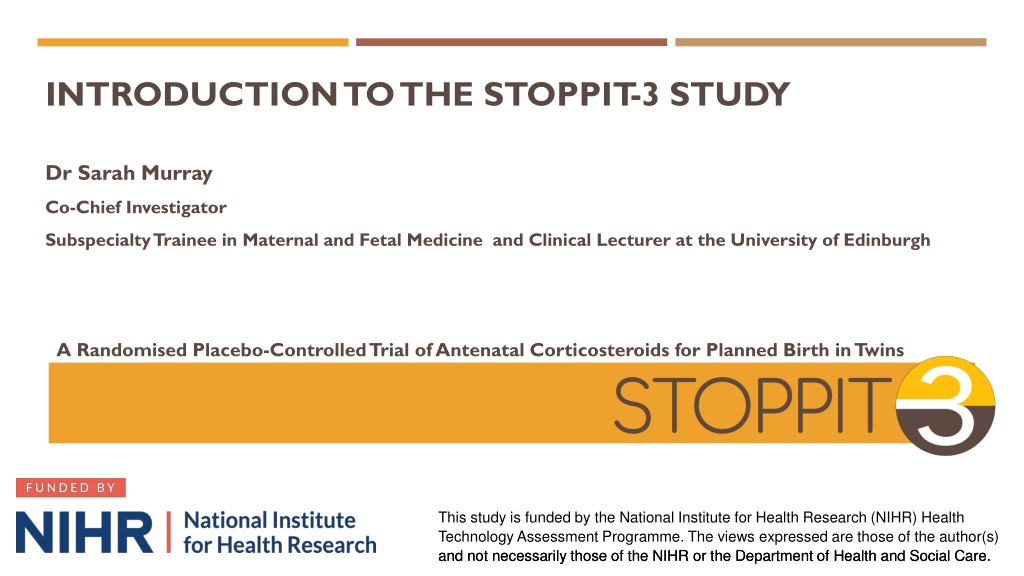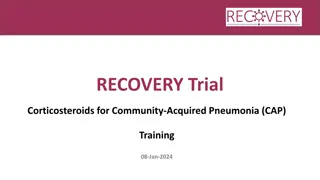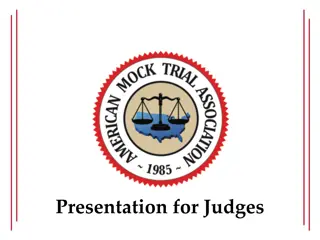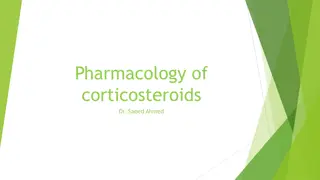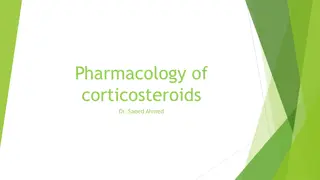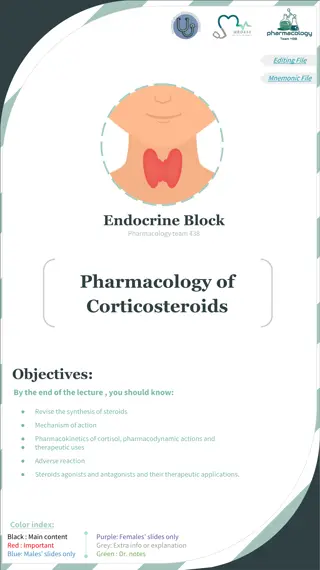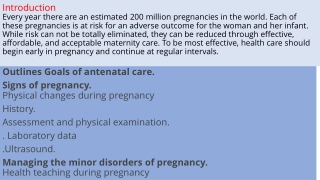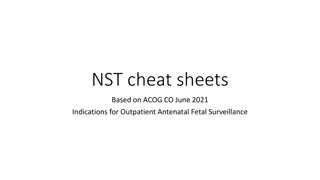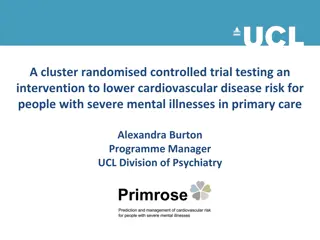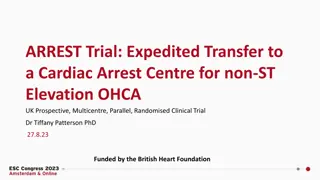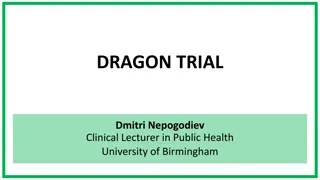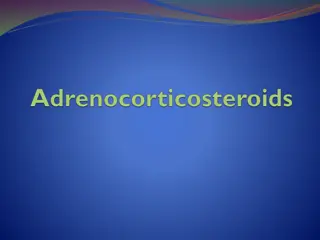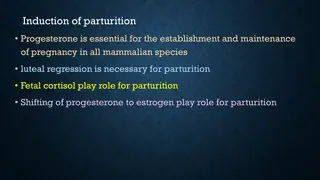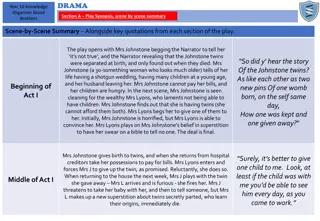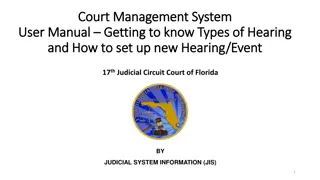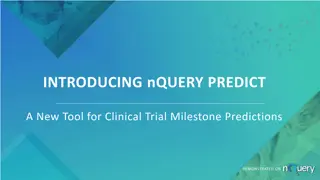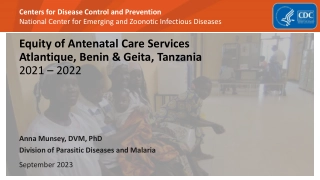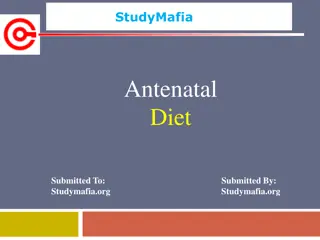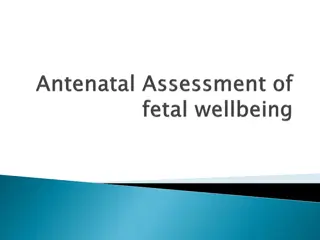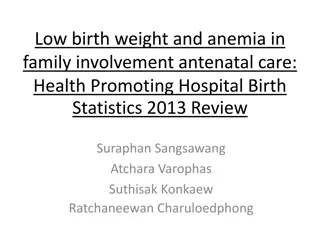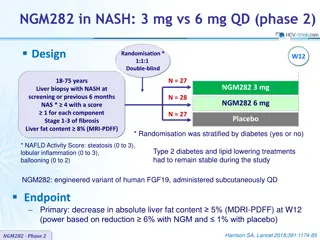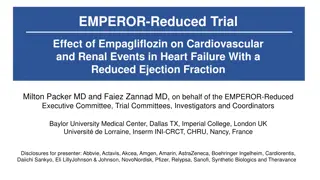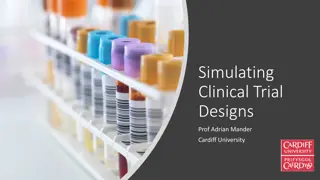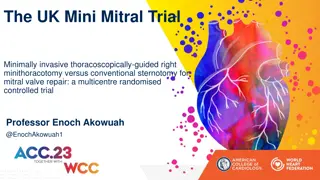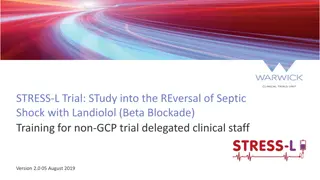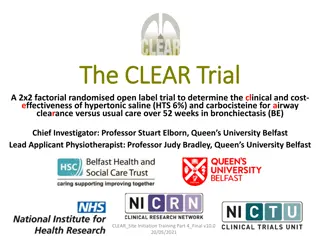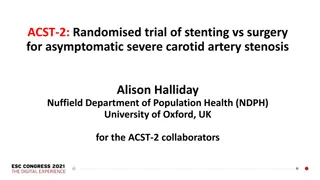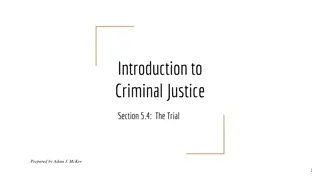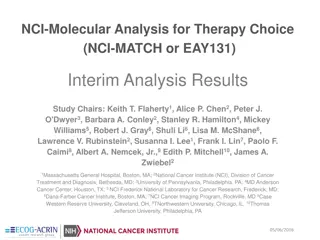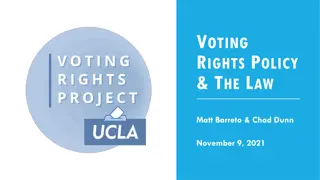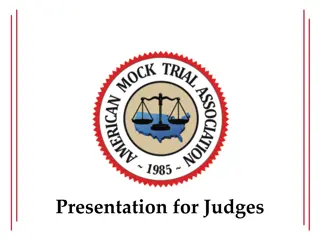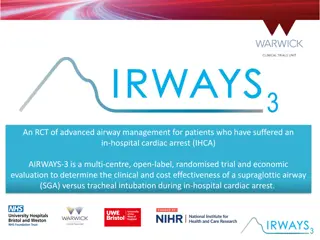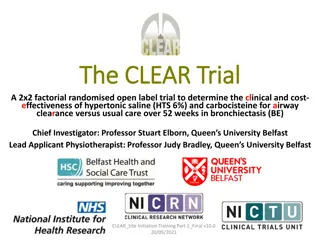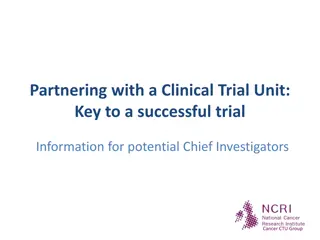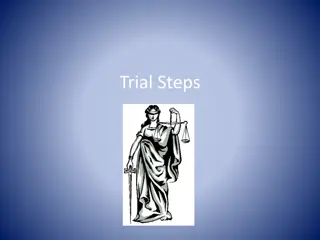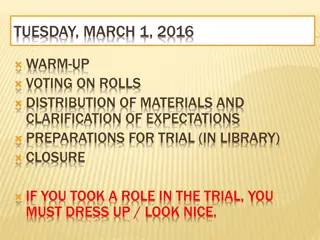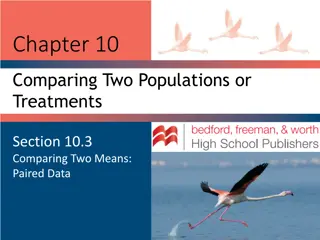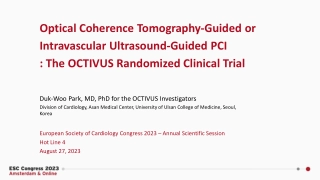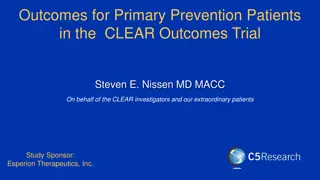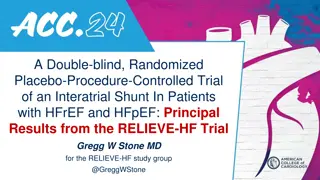A Randomised Trial of Antenatal Corticosteroids in Twins
Dr. Sarah Murray leads the STOPPIT-3 study, assessing the use of antenatal corticosteroids in twins for planned births to reduce respiratory morbidity. The trial aims to address the lack of evidence in this area, with potential benefits in reducing neonatal unit admissions but also risks such as neonatal hypoglycemia. Pregnant women with twins at 35-38+6 weeks will receive either corticosteroids or a placebo, with the primary outcome being the need for respiratory support within 72 hours of birth.
Download Presentation

Please find below an Image/Link to download the presentation.
The content on the website is provided AS IS for your information and personal use only. It may not be sold, licensed, or shared on other websites without obtaining consent from the author. Download presentation by click this link. If you encounter any issues during the download, it is possible that the publisher has removed the file from their server.
E N D
Presentation Transcript
INTRODUCTION TO THE STOPPIT -3 STUDY Dr Sarah Murray Co-Chief Investigator Subspecialty Trainee in Maternal and Fetal Medicine and Clinical Lecturer at the University of Edinburgh A Randomised Placebo-Controlled Trial of Antenatal Corticosteroids for Planned Birth in Twins This study is funded by the National Institute for Health Research (NIHR) Health Technology Assessment Programme. The views expressed are those of the author(s) and not necessarily those of the NIHR or the Department of Health and Social Care. and not necessarily those of the NIHR or the Department of Health and Social Care. This study is funded by the National Institute for Health Research (NIHR) Health Technology Assessment Programme. The views expressed are those of the author(s)
Overview Background/aims of the trial Where we are currently Common queries from sites
Background Aim: to assess the effectiveness of antenatal corticosteroids (ACS) prior to planned birth in twins Setting: multi-centre placebo controlled trial with internal pilot Rationale: lack of evidence of the use of ACS in twins
Background Huge variation in clinical practice Benefits ACS: reduce respiratory morbidity and neonatal unit admission Harms of ACS: neonatal hypoglycaemia, reduction in fetal growth, possible detrimental effect on neurodevelopment
PICO Population: Pregnant women with twins and planned birth 35-38+6 weeks Intervention: two doses of 12mg dexamethasone by intramuscular injection 24 hours (+/- 4 hours) apart given within 7 days of planned birth Control: two doses of matching placebo (0.9% NACL) by intramuscular injection 24 hours (+/- 4 hours) apart given within 7 days of planned birth Outcome: need for respiratory support within 72 hours of birth
Primary Outcome Composite of respiratory support within 72 hours of birth consisting of one or more of the following continuous positive airway pressure (CPAP) supplemental oxygen by high-flow nasal cannulae for at least 2 consecutive hours need for supplemental oxygen by low flow nasal cannulae or incubator oxygen for at least 4 continuous hours mechanical ventilation Extracorporeal Membrane Oxygenation (ECMO) Stillbirth Neonatal death within 72 hours of birth
Secondary outcomes To determine the effect of ACS on Severe respiratory morbidity Perinatal morbidity Perinatal mortality Maternal outcomes Determine the cost effectiveness of ACS Effect of ACS on cognitive and language development
Inclusion Criteria 1552 women >16 years Viable twin pregnancy with a planned birth Known chorionicity At least 24 hrs to delivery to allow study drug administration
Exclusion Criteria Known fetal anomaly Diabetes (pre-existing or gestational) Women who have had steroids 7 days previously Contraindication to steroids Unknown chorionicity/gestational age Serious pregnancy morbidity indicating birth before 35 weeks or <24 hrs
Timelines Grant set up started Nov 2021 First site open: Aug 2022 10 month pilot aiming for 169 women and 36 sites open Recruitment target of 1.1woman per month per site
Where we are currently 2 sites open - Royal Infirmary Edinburgh - Chesterfield
Where we are currently 7 sites awaiting final paperwork sign off - Royal Devon - Somerset - Leeds - East Lancashire - Birmingham Women s Hospital - North Tyneside Hospital - South Tees
Common queries from sites Email the trial team with any questions/queries Examples of recent queries Co-enrolment in other trials Delivery of 24 hour unblinding Discharge <72 hours and how to complete data collection
Thank you for coming and supporting STOPPIT -3
